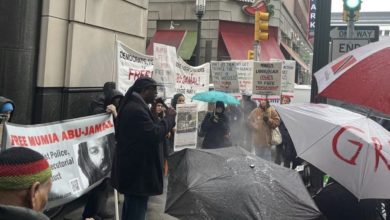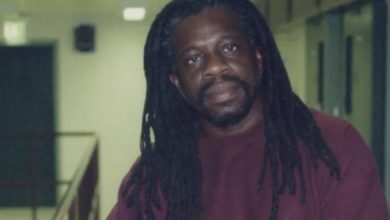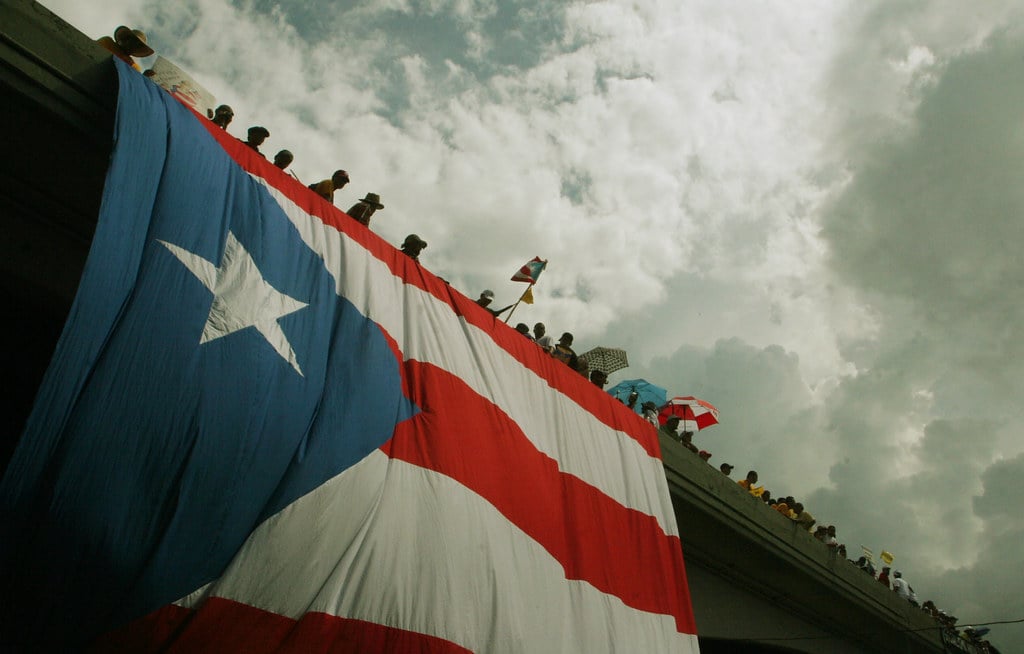119 years a U.S. colony
Puerto Rico is all over the news lately. There are headlines about Puerto Rico’s staggering $73 billion debt to U.S. funds. There are images of students shutting down the island’s universities in response to the austerity measures and tuition hikes. There’s the 100th anniversary of the 1917 Jones Act that made Puerto Ricans “citizens” of the United States. There’s the front page news that a so-called “terrorist” is being honored at this year’s Puerto Rican Day Parade. The same day as the parade, June 11th, the island will also hold a non-binding plebiscite on whether Puerto Rico should become a U.S. state, an independent nation or continue as a “free associated territory.”
So many headlines, so little clarity.
With so much at stake, it is important that all people who care about justice and dignity for Puerto Rico have a clear understanding of what is happening right now en la isla and in the diaspora.
Predatory lending and toxic loans
The global financial crisis of 2008-09 was precipitated by big banks that sold U.S. families predatory home loans, falsely leading them to think they could afford mortgages. Originally, working-class families saw the “affordable” mortgages as a dream come true. But this was an illusion. The loans had small interest rates for the first few years and then ballooned into high-interest rate loans. When they could no longer pay the mortgages, the banks foreclosed on hundreds of thousands of families, ushering in the housing crisis of 2009.
This is what happened to Puerto Rico. Professional politicians and thieves contracted a massive debt over decades for the so called “development” of the island. The bulk of these funds only enriched foreign capitalists and their local intermediaries. When the interest rates soared out of control, U.S. banks — the very forces who robbed the country blind for the past 119 years — claimed Puerto Rico owed them $123 billion in debt.
Now hedge funds are trading in the Puerto Rican people’s misery. They packaged these toxic loans together and now sell them on the market to speculators who want to cash in on the interest. When Puerto Rico’s authorities admitted that the debt was not payable, creditors sued. Washington offered no assistance; President Trump and Congress oppose any debt relief.
“No taxation without representation”
Wall Street demands that the 3.5 million Puerto Rican people pay the debt. The bankers’ agents in Congress have done their bidding, appointing a seven-member fiscal control board — aptly called “la junta” — which is composed of the same people that are responsible for Puerto Rico’s debt crisis. Their plan is to have Puerto Rican governor Alejandro Garcia Padilla carry out strict austerity measures, which include closing public schools, privatizing utilities, laying off public employees and defunding pensions to the tune of $49 billion.
The financial oversight board has pledged to cut Puerto Rico’s university budget in half. Tuition increases could double and the additional funds will not go towards improving student life but instead to paying bondholders.
Students have led mass protests against the cuts. They have shut down the University of Puerto Rico for the past two months. Loderay Bracero Marrero, an environmental science major, captured the sentiment of tens of thousands when he exclaimed: “If you tell me you are going to raise tuition so you can offer more courses that’s different. These cuts are not to improve, they are to impoverish.”
The slogan “no taxation without representation” was a rallying cry in 1776 for colonial America. Now the slogan applies to colonial Puerto Rico, given that a board of U.S.-appointed bankers holds a blatant dictatorship over the island’s policy.
Our nation
Puerto Rico is a small island, 100 miles long by 35 miles wide, of 3.5 million people. Though rich with resources, Puerto Rico’s poverty rate triples that of the United States — 45.3 percent to 13.2 percent. The average yearly income per household is a paltry $21,639, which is nearly half of Mississippi’s median income, the poorest U.S. state! Today over four million of us live in New York City, Southern Florida and throughout the United States. For the vast majority, there was little desire to leave their homeland. The difficulty to survive and find work on the island has constituted a form of forced displacement.
Puerto Ricans have a own unique history, customs and African and Taino-influenced Spanish. The island’s former oppressors from the Spanish State dare to tell us we don’t speak “correctly,” while the current colonizers have tried to humiliate our people and degrade our culture. But whether residing in Ponce or North Philadelphia, Barrio Obrero or Roxbury, the Puerto Rican people are proud of who we are; we are survivors of five centuries of rape, pillage and colonialism, and will never give up.
The $4 billion a year in so-called “aid” that Puerto Rico receives from the U.S. government is an act of deception. The truth is that U.S. capital annually extracts $72 billion in profits — that is the surplus value created by Puerto Rican workers, which could instead be directed towards the country’s own people and development. Puerto Rico has a $125 billion economy, the 75th largest economy in the world. Puerto Rico is the fifth largest national purchaser of American goods, The finance, insurance, real estate and tourist industries make a killing on the island. It is not “too small” to survive on its own. The problem is that U.S. interests dominate the lucrative pharmaceutical, textile, petrochemical and electronics industries on the island.
Over 3 million tourists visit Puerto Rico every year. Most tourists to our islands see little more than the enchanting beaches, lush vegetation and el Yunque rainforest, the lungs of the Caribbean. Tourism is the island’s largest industry, netting the big investors $7 billion a year. Very little of this money returns to the people.
The popular myth is that the island would drown in the sea were it not for the United States, and the Puerto Rican people would starve. But in fact U.S. banks and investors would be starved of a host whose lifeblood they have parasitically drained. Puerto Rico does not need the U.S. A tiny group of U.S. corporations needs Puerto Rico.
Óscar: our Nelson Mandela
So where does our recently released political prisoner Oscar Lopez Rivera fit into all of this?
Oscar was one Puerto Rican caught in the colonial trap of poverty, migration and the U.S. military draft. When the U.S. government sent the young Oscar to fight in the U.S. War of Aggression against Vietnam (1962-1975), he saw jíbaros (peasants) there who wore the same hats as the peasants in Puerto Rico. Óscar opposed the war, recognizing that the U.S. was doing in Vietnam what it had done to Puerto Rico.
Upon returning to Chicago after the war, Oscar joined the Fuerzas Armadas de Liberacion Nacional (Armed Forces of United Liberation) which swore to win Puerto Rico’s independence by any means necessary. The revolutionary organization declared war on their colonial enemy and was quickly targeted by U.S. security forces.
Oscar served 35 years in a federal prison because he refused to accept the humiliation of colonialism and refused to sell out the struggle for independence. This is why nearly the entire U.S. ruling class — from Trump to Cuomo to corporations like Goya, Jetblue, and the NY Yankees, and the whole gamut of pitiyanki (sell-out) accomplices — fled the Puerto Rican Day Parade when it was announced that would be honored there. In the words of another surviving Puerto Rican political prisoner, Rafael Cancel Miranda: “It is an honor when my people’s enemies curse my name everyday…if defending my homeland is terrorism, I want to die a terrorist and defend my dignity as a human being.”
Oscar’s lifelong cause has been to gain international acknowledgement that our island is fighting to free itself from the chains of oppression. Upon being released from prison, he declared his solidarity with Black Lives Matter and all movements of the disenfranchised. Oscar will be leading a powerful revolutionary contingent in this year’s National Puerto Rican Day Parade in order to “confront the fiscal, healthcare and human rights crisis Puerto Rico is facing at this historical juncture.”
Independencia: the only way forward
The Puerto Rican people struggle against some of the highest rates of unemployment, mental illness, poverty, incarceration, suicide, military enrollment and drug and alcohol addiction. Racists project this as a cultural problem, when in fact all these are symptoms of capitalism and colonialism. Cultural, economic and political colonialism kills our people everyday.
The Party for Socialism and Liberation believes that the only solution to the crises facing Puerto Rico is independence. Its members will proudly march in the 60th National Puerto Rican Day Parade, which has for too long been infiltrated and dominated by corporations and politicians seeking to profit off of the people. Oscar cleaned up the parade and sent them running!
We will be marching with Oscar this Sunday and we hope that you can join us as we move through Fifth Avenue chanting “Que viva Puerto Rico libre!”




